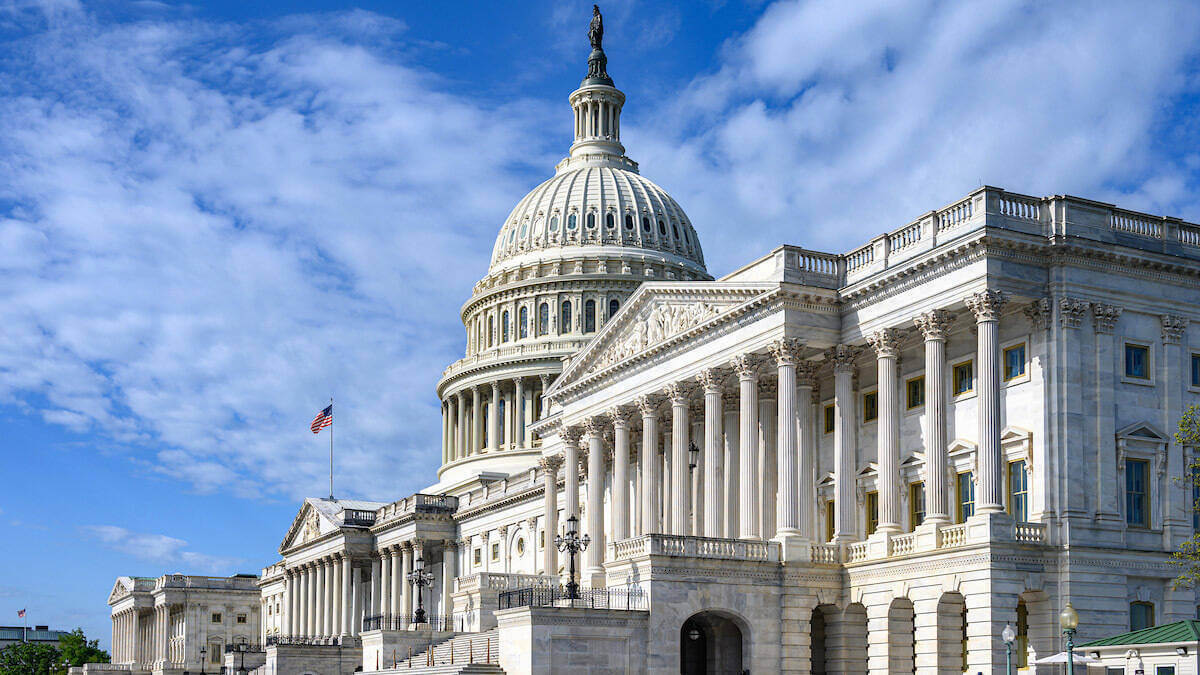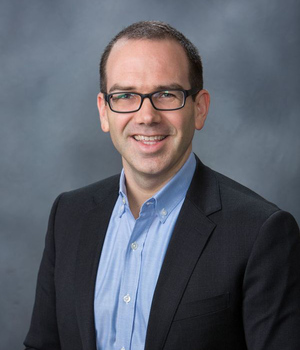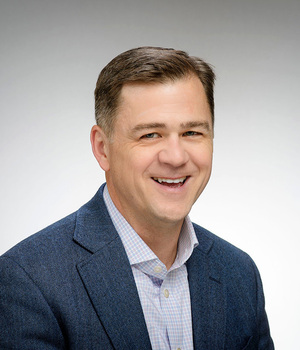Essays on democracy draw attention to critical threats, explore safeguards ahead of Jan. 6

Following the events of Jan. 6, 2021 — when a violent mob stormed the U.S. Capitol building in an effort to interrupt the certification process of the 2020 presidential election — experts began to question how to protect the next presidential election from a similar threat. To that end, University of Notre Dame political scientists have partnered with preeminent scholars of democracy from across the country to produce a set of recommendations to strengthen and safeguard democracy in America.
The University’s Rooney Center for the Study of American Democracy established the January 6th, 2025, Project in an effort to understand the social, political, psychological and demographic factors that led to that troublesome day in our nation’s capital. By pursuing research, teaching and public engagement, the project offers insight into how American democracy got to this point and how to strengthen and protect it, while emphasizing how to prepare for a similar attack many deem imminent on Jan. 6, 2025, when Congress seeks to certify the 2024 presidential election results. The project includes 34 members who represent various disciplines and leading universities — 10 of whom hail from Notre Dame’s faculty.

Matthew E.K. Hall, director of the Rooney Center, said one of the project’s first goals was to create a collection of essays written by its members to be included in a special issue of the Annals of the American Academy of Political and Social Science, which was published this month. These essays aim to draw attention to the vulnerabilities in our democratic system and the threats building against it, and to create consensus on ways to remedy both problems.
The authors set out to tackle the following tough questions, but from different perspectives: How serious are the threats to our democracy, how did we get to this point, and what can we do to fix the situation? The 14 essays are broken down into categories, falling under the headings of “‘Us’ Versus ‘Them,’” “Dangerous Ideas” and “Undermining Democratic Institutions.” With most pieces being co-authored by faculty from multiple institutions, the collection offers a collaborative approach to evaluating what led America to this crisis and how to avert it.

David Campbell, director of the Notre Dame Democracy Initiative and the Packey J. Dee Professor of American Democracy in the Department of Political Science, described the project as “an example of how Notre Dame can be a national leader on the issue of preserving American democracy. Not only do we have top scholars working on the issue, but we can provide a forum for a community of scholars across many leading universities. Maintaining democracy will require all hands on deck.”
In the collection’s introduction, Hall explained the backdrop of what led America to this point and why these essays help acknowledge the challenges we are facing as a nation. “We are basically living through a revival of fascist politics in the U.S.,” Hall wrote, “where politicians are using divisive rhetoric to separate us into an ‘us’ versus ‘them’ paradigm — left versus right, white versus Black, rich versus poor, urban versus rural, religious versus secular — the divisions go on and on.”
“Maintaining democracy will require all hands on deck.” ~ David Campbell
Hall estimated that between 25 and 30 percent of Americans have consistently endorsed some fascist ideas such as racial oppression, conspiracy theories and authoritarianism. “Ordinarily, this consistent minority is held in check by the democratic process,” Hall explained. “These candidates don’t even get nominated for major political positions because their co-partisan allies don’t want to lose the general election.
“But when our politics become this intensely polarized, most partisans will support their party no matter who is nominated,” he continued. “As a result, politicians pushing these fascist ideas can gain power by taking over one political party and then exploiting the polarization to win elections. Once taking power, they will likely manipulate the electoral process to remain in power.”
Consequently, Hall said, fascist leaders are able to exploit these social divisions to break down basic social norms and shared understandings about American politics. This pushes huge swaths of society toward accepting dangerous ideas that would normally be rejected, such as expanded executive power, intense animosity toward political opponents, a wavering support for free speech, and political candidates who deny election losses. This weakened support for democratic norms enables attacks on our democratic institutions, such as ignoring court rulings, enacting voter suppression laws and — most shockingly (as in the case of Jan. 6) — openly subverting elections.
With the political situation as dire as many feel it to be, the January 6th, 2025, Project’s essays outline a few practical steps that can be taken to strengthen and safeguard democracy in America.
For example, Hall said, as the nation moves forward into this next election year, American voters have to stay focused on the “deliberate denial of reality” on the part of some politicians so that they can discern the difference between lies, truths and just plain distractions.
“The more we lose touch with basic facts and accept misinformation, conspiracies and contradictory claims as the norm in our society,” he said, “the more vulnerable we are to losing our democracy.
“Even more importantly, we have to be willing to sacrifice short-term political gains in order to preserve the long-term stability of our democracy. That might mean holding your nose to vote for candidates that you would not otherwise support.”
Hall added that Americans must redouble their devotion to democratic principles such as open elections and free speech, and states should adopt institutional reforms that remove partisans from the electoral process (for example, employing nonpartisan election commissions). He also noted the importance of paying close attention to efforts that divide groups of Americans, especially those that portray outgroup members as evil or less than human.
“The public needs to take these critical threats seriously and we’re hoping that these essays draw attention to them, and help to build consensus about the underlying problems in our politics and potential remedies.” ~ Matthew E.K. Hall
The members of the project hope that by honestly acknowledging the challenges our nation is facing, understanding the mistakes that were made and recognizing the vulnerabilities in our system that led us to this situation — and by resolving to fix these issues — we can pull our country’s political system back from the edge of the cliff before it’s too late.
“The public needs to take these critical threats seriously and we’re hoping that these essays draw attention to them, and help to build consensus about the underlying problems in our politics and potential remedies,” Hall concluded.
Notre Dame faculty who are members of the January 6th, 2025, Project include David Campbell, the Packey J. Dee Professor of American Democracy; Darren Davis, the Snyder Family Mission Professor of Political Science; Luis Fraga, the Rev. Donald P. McNeill, C.S.C., Professor in Transformative Latino Leadership; Matthew E.K. Hall, the David A. Potenziani Memorial College Professor of Constitutional Studies; Jeffrey Harden, the Andrew J. McKenna Family Associate Professor of Political Science; Geoffrey Layman, professor and chair of the Department of Political Science; Rachel Porter, assistant professor of political science; Ricardo Ramirez, associate professor of political science; Erin Rossiter, the Nancy Reeves Dreux Assistant Professor of Political Science; and Christina Wolbrecht, the C. Robert and Margaret Hanley Family Director of the Notre Dame Washington Program and professor of political science.
Democracy is one of several University-wide initiatives emerging from Notre Dame’s recently released Strategic Framework. The Democracy Initiative will further establish Notre Dame as a global leader in the study of democracy, a convenor for conversations about and actions to preserve democracy, and a model for the formation of civically engaged citizens and public servants. The Democracy Initiative will connect research, education and policy work across multiple campus units and will extend Notre Dame’s voice to policymakers and federal agencies in Washington, D.C.
Contact: Tracy DeStazio, associate director of media relations, 574-631-9958 or tdestazi@nd.edu
Latest Faculty & Staff
- In memoriam: Alasdair MacIntyre, the Rev. John A. O’Brien senior research professor of philosophy emeritusAlasdair MacIntyre, the Rev. John A. O’Brien senior research professor of philosophy emeritus and a permanent senior distinguished research fellow at the de Nicola Center for Ethics and Culture, died on May 21, 2025. He was 96.
- Santiago Schnell, dean of Notre Dame’s College of Science, appointed as provost of DartmouthSantiago Schnell, the William K. Warren Foundation Dean of the College of Science at the University of Notre Dame, has accepted an appointment as provost at Dartmouth College. He will depart Notre Dame at the end of June and begin his new role in July.
- Notre Dame’s Fightin’ Irish Battalion receives Department of Defense award as nation’s top Army ROTC programThe United States Department of Defense honored the University of Notre Dame’s Army ROTC Fightin’ Irish Battalion as the nation’s top Army collegiate program for the 2023-24 academic year. This will be the first time the unit has received the department’s Educational Institution Partnership Excellence Award, which recognizes the program’s achievements in recruiting, educating, training and commissioning leaders of character to be the next generation of military officers.
- In memoriam: Karl Ameriks, the McMahon-Hank Professor of Philosophy EmeritusKarl Ameriks, the McMahon-Hank Professor of Philosophy Emeritus at the University of Notre Dame, died on April 28 from pancreatic cancer. He was 77. Born in post-World War II Germany, Ameriks’ family emigrated to the United States when he was a child, and he grew up in Detroit, Michigan. He received his bachelor’s and doctoral degrees from Yale University. He came to the Department of Philosophy at Notre Dame in 1973 during a formative time for the department, which had transitioned from a predominantly Thomist focus to the more analytical American philosophy in the 1960s.
- Notre Dame psychologist explores how children best learn math — and yes, timed practice helpsUniversity of Notre Dame professor of psychology Nicole McNeil recently co-authored a report that examines the best way for children to learn arithmetic — whether that’s by memorizing number values and multiplication tables, or by studying math at a deeper, conceptual level. The report, “What the Science of Learning Teaches Us About Arithmetic Fluency,” was published in the journal Psychological Science in the Public Interest and shows that children learn most effectively when instruction follows an evidence‑based cycle: grounding facts in conceptual understanding, using brief timed practice to make those facts automatic, and then returning to discussion and reflection to deepen that knowledge.
- ’Tis the season for ticks and mosquitoes. A medical entomologist talks about these pests and how to avoid them.Notre Dame expert Lee Haines explains the risks mosquitoes and ticks pose to the Midwest and discusses how the public can best protect themselves and family members (including pets) from these bloodthirsty pests.












